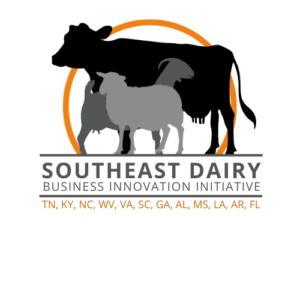
SDBII 2025 Funds Frozen
NC State Dairy Extension received tough news from our SDBII lead partner, University of TN, today regarding the freezing …


El inglés es el idioma de control de esta página. En la medida en que haya algún conflicto entre la traducción al inglés y la traducción, el inglés prevalece.
Al hacer clic en el enlace de traducción se activa un servicio de traducción gratuito para convertir la página al español. Al igual que con cualquier traducción por Internet, la conversión no es sensible al contexto y puede que no traduzca el texto en su significado original. NC State Extension no garantiza la exactitud del texto traducido. Por favor, tenga en cuenta que algunas aplicaciones y/o servicios pueden no funcionar como se espera cuando se traducen.
Inglês é o idioma de controle desta página. Na medida que haja algum conflito entre o texto original em Inglês e a tradução, o Inglês prevalece.
Ao clicar no link de tradução, um serviço gratuito de tradução será ativado para converter a página para o Português. Como em qualquer tradução pela internet, a conversão não é sensivel ao contexto e pode não ocorrer a tradução para o significado orginal. O serviço de Extensão da Carolina do Norte (NC State Extension) não garante a exatidão do texto traduzido. Por favor, observe que algumas funções ou serviços podem não funcionar como esperado após a tradução.
English is the controlling language of this page. To the extent there is any conflict between the English text and the translation, English controls.
Clicking on the translation link activates a free translation service to convert the page to Spanish. As with any Internet translation, the conversion is not context-sensitive and may not translate the text to its original meaning. NC State Extension does not guarantee the accuracy of the translated text. Please note that some applications and/or services may not function as expected when translated.
Collapse ▲
NC State Dairy Extension received tough news from our SDBII lead partner, University of TN, today regarding the freezing …
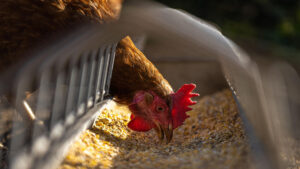
“Youth reporters: HPAI Impacts? Read this!” Learn more about Avian Flu from D’Lyn Ford’s timely CALS News article, in which …
The following is from an Ag & Resource Economics colleague, Nicholas Brown, and can be found on the NC …

The beneficial ownership information (BOI) reporting requirements are, once again, mandatory after a federal court decision last week. On February …
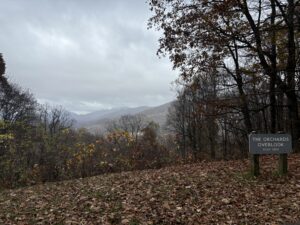
As the ‘ag tax’ professor at NC State, I have made it my mission since the devastation caused by …
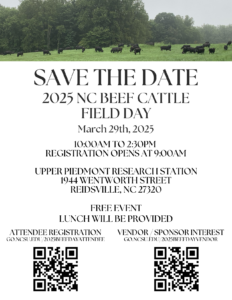
Save the date for the 2025 NC Cattle Field Day on March 29, 2025, from 9 a.m. to 2:30 …
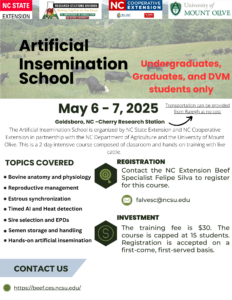
Register today for our 2025 Spring Artificial Insemination School focused on instructing undergraduate, graduate, and DVM students that will take …
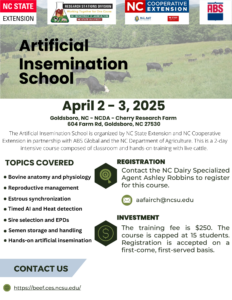
Register today for our 2025 Spring Artificial Insemination School focused on instructing producers, extension agents, and farm employees that will …
The IRS recently announced a $0.03 increase for the optional standard mileage rate for business uses in 2025. The …
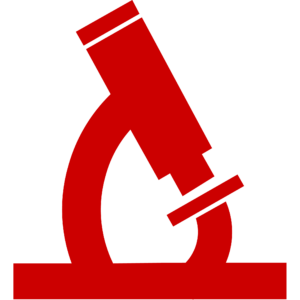
Dr. Clint Stevenson from NC State’s Food, Bioprocessing and Nutrition Sciences Department is hosting a webinar on Feb 28th …
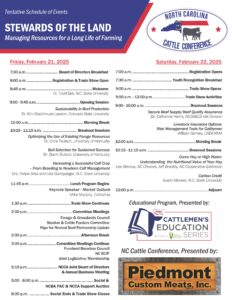
We are excited to share the agenda for the 2025 North Carolina Cattlemen’s Association taking place in Hickory, NC …
February 13th from 6:00 p.m. – 8:00 p.m. Iredell County Extension Office; 444 Bristol Drive Statesville, NC 28677 Come out for …

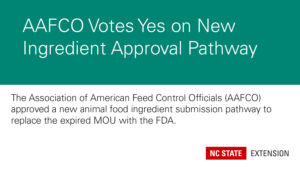
On January 22, 2025 the Association of American Feed Control Officials (AAFCO) voted to approve a proposal from Kansas …
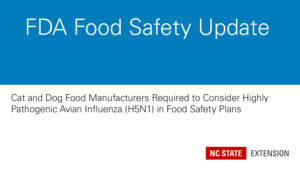
On Friday, January 17, the U.S. Food and Drug Administration (FDA) released a statement requiring cat and dog food …

Join us for PSSI What: 5-day residential summer camp at NC State’s Prestage Dept. of Poultry Science. Who: High school youth …
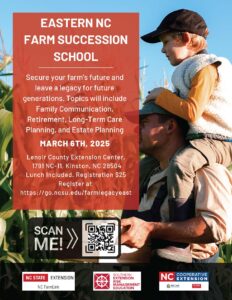
Eastern North Carolina farmers and farm families are invited to participate in the NC Farm Succession School, a full-day …
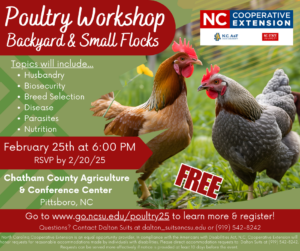
Have questions about Backyard Poultry? Come to a free Extension workshop to be held Feb 25th at 6 p.m. …

The Dairy Margin Coverage (DMC) Program, administered by the Farm Service Agency (FSA), is a voluntary risk management tool …
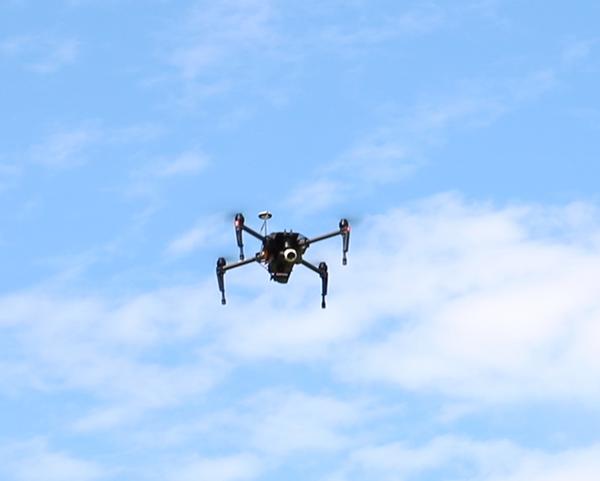
This publication discusses flying unmanned aerial vehicles (drones, model aircraft) for commercial purposes. You'll learn …
Animal necropsies attempt to determine the cause of death and whether it affects a concern …

This is chapter 9 of a comprehensive guide to postharvest engineering topics for the proper …

It is generally advised that all goats be vaccinated against overeating disease (enterotoxemia) and tetanus. …
This factsheet offers some information on the signs, symptoms, and treatment of coccidiosis, the most …

Information on the different types of lice, diagnosis and treatment is presented in this factsheet. …
This factsheet offers information on forage needs for meat goats, as well as typical grazing …
Goats raised for meat need high quality feed in most situations and require an optimum …